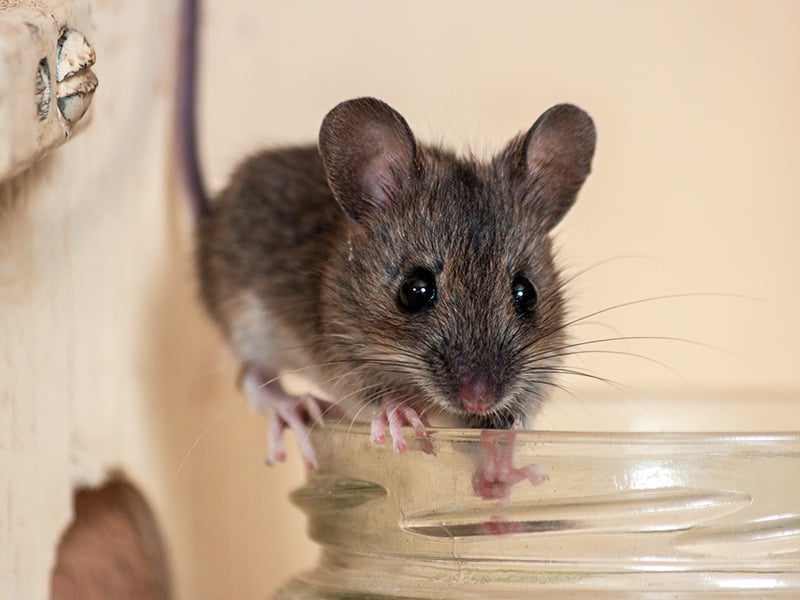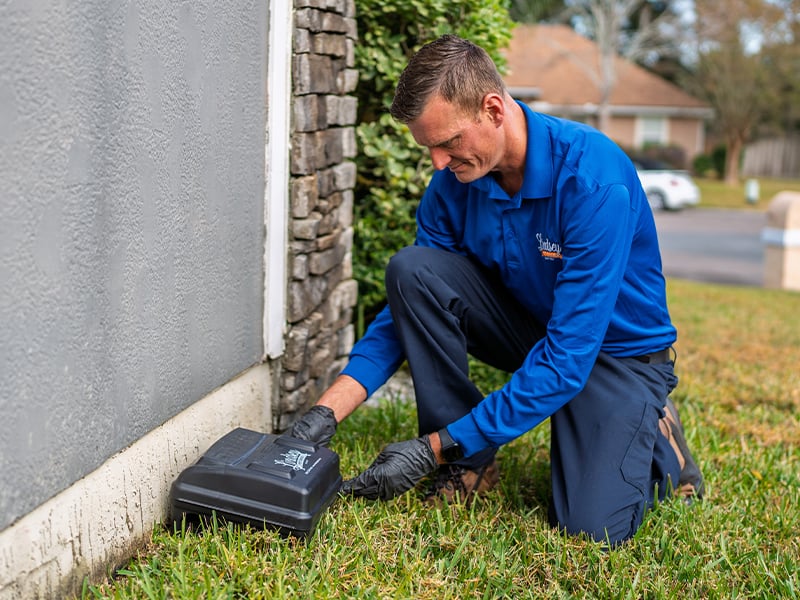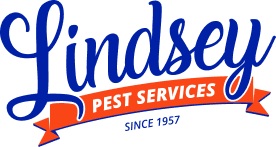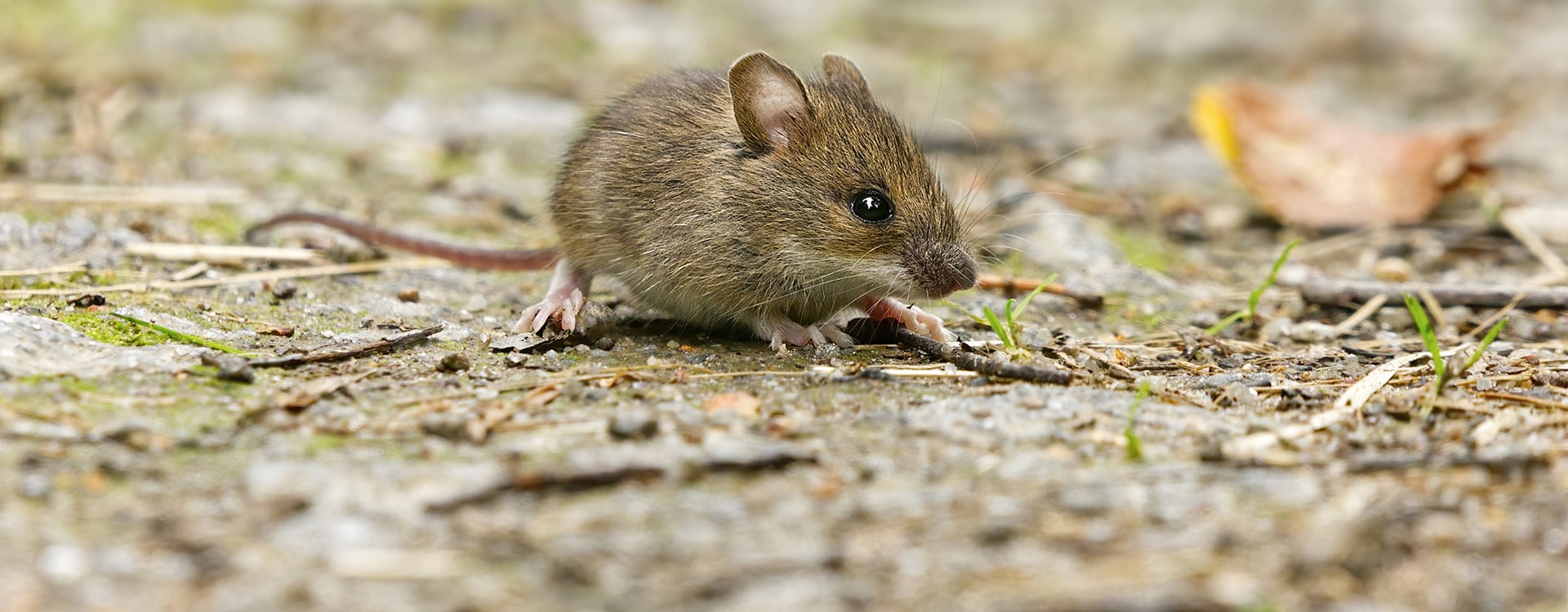What do mice look like?
House mice are covered in light brown to dark gray fur and have lighter-colored underbellies. They have large, round ears that stand straight on top of their heads, pointed snouts, and long, skinny tails covered in a light layer of velvety fur.
Adult house mice range from 5 to 8 inches in length from nose to tail.

When are mice most active?
Are mice nocturnal?
Mice are nocturnal rodents, meaning they are most active at night and usually stay hidden during the day. They leave their nests at night to search for food and nesting materials. Property owners may hear scratching, squeaking, and pitter-patter noises coming from walls and ceilings during the evening hours or as they're trying to sleep.
What attracts mice?
House mice are attracted to properties that provide abundant food sources, such as trash cans, compost bins, gardens, and people and pet food. Water sources, such as leaky pipes, dripping faucets, and standing water, will also lure in these small rodents.
Where are mice most likely to enter a house?
Mice are opportunistic rodents that will seize any opportunity to get inside homes and buildings. This means they can enter through cracks in the foundation, gaps in exterior walls, and other openings. It's important to note that mice can fit through holes as small as the diameter of a dime.
Where do mice usually hide or nest in a house?
Common hiding and nesting spots include, but are not limited to:
-
Closets and storage areas (the more clutter, the better)
-
Attics
-
Garages
-
Crawl spaces
-
Basements
-
Wall and ceiling voids
-
Kitchens (under sinks and appliances, behind cabinet bases, and in the pantry)
-
Furniture
Are mice dangerous?
House mice contaminate food and surfaces with their saliva and excrement, spreading diseases such as Hantavirus, Leptospirosis, and Salmonella. Additionally, the shed fur and droppings of house mice can trigger allergic reactions in many people.
House mice are destructive pests. Similar to all rodents, they have continuously growing front incisors on their top and bottom jaws. To prevent their teeth from overgrowing, they chew on almost anything they come across. Their chewing habits can lead to fires, electrical shorts, and water damage because they can chew through wires, pipes, insulation, drywall, and flooring. They also cause damage to personal property by chewing on boxes, clothing, shoes, and furniture.
How do I get rid of mice?
To effectively control rodents, it's important first to identify the type of infestation. Once a house mouse infestation is confirmed, our rodent control experts will locate potential entry points and offer one-time or ongoing rodent control services that may include trapping and removal, monitoring, and exclusion.
In addition to our stand-alone rodent control, Lindsey Pest Services also offers homeowners our Better Plan, which bundles general pest control, termite control, and rodent control! Check out the plan features below or give us a call to discuss your mouse problem!
Better Pest Control Plan "Our Most Popular Plan!"
Starting at only $59* per month, Lindsey's Better plan protects your home and family from over 30 general pests plus rodents. This residential pest control plan includes an initial interior and exterior inspection and treatment for your existing pest problem. After the initial service, an experienced technician will return every quarter to perform an exterior treatment to keep insects and rodents out.
-
Quarterly Pest Service
-
Lindsey Pest Free Guarantee
-
30+ Common Pests
-
Webbing Removal (Up to 12 ft)
-
Wasp Removal (Up to 10 ft)
-
Rodent Control
-
Seasonal Mosquito Suppression
-
Fire Ant Control
-
Scorpion & Other Stinging Insect Control
Pests Covered In This Program:
German Cockroaches, American Cockroaches, Brown Banded Cockroaches, Australian Cockroaches, Asian Cockroaches, Woods Roaches, Carpenter Ants, Pharaoh Ants, Rover Ants, Ghost Ants, Thief Ants, Monomorium Ants, Acrobat Ants, Big-Headed Ants, Odorous House Ants, Pavement Ants, Little Black Ants, Silverfish, Fire Brats, Springtails, Psocids, Polistes Wasps, Crickets, Earwigs, Cellar Spiders, Jumping Spiders, Weevils, Cigarette Beetles, Drugstore Beetles, Confused Flour Beetles, and Fungus Gnats PLUS Rodents
Additional Details
* New customers only - after initial fee. Some exclusions may apply.
* One year service agreement required
* Early cancellation fee may apply

Get Your Free Pest Control Quote Today!
Complete the form below to get started with your free, no-obligation quote, and a Lindsey Pest representative will contact you shortly.
Same Day Service Available!









